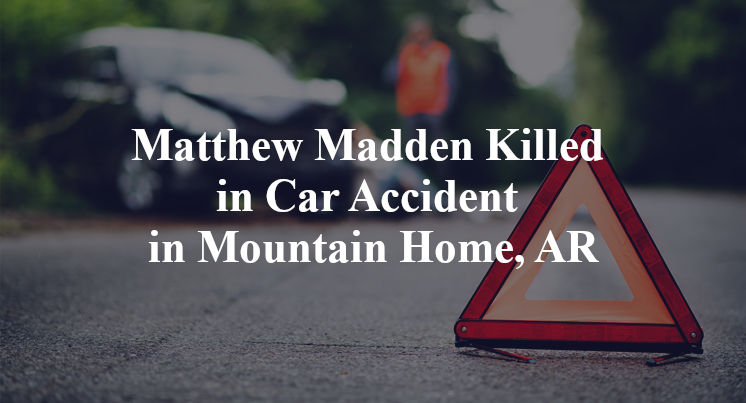Matthew Madden Killed in Car Accident in Mountain Home, AR
Mountain Home, AR — November 23, 2024, Matthew Madden was killed in a car accident at about 1:30 a.m. on the U.S. Route 62 bypass.
Authorities said a 2020 GMC Terrain was headed west when its driver crossed the median and rolled several times before coming to rest on the south side of the road.

Driver Matthew C. Madden, 41, died in the Baxter County crash, according to authorities.
The initial accident report indicates the weather was clear and the road was dry at the time of the crash.
The accident remains under investigation.
Commentary
When I read about a crash like this one, my thoughts go to the loved ones who are undoubtedly left with pressing questions about what happened. While the report provides some details, such as the weather and road conditions, it raises many more questions about what caused the vehicle to cross the median and roll multiple times. To ensure a complete understanding of the crash, we must focus on three key areas: the thoroughness of the investigation, the potential for a vehicle defect and the collection of electronic data from the vehicle.
First, it’s essential to evaluate the scope of the authorities’ investigation. The report notes that the road was dry and the weather was clear, which rules out some potential contributing factors but doesn’t explain why the vehicle crossed the median. Did the driver swerve to avoid something on the road? Was there any evidence of distraction, impairment or a medical event? Thorough accident reconstruction and scene analysis are critical in single-vehicle crashes like this to determine if external factors played a role. Additionally, witness accounts or nearby surveillance footage could provide further insights into the moments leading up to the crash.
Second, the possibility of a vehicle defect must be explored. A 2020 GMC Terrain is a relatively modern vehicle, equipped with advanced safety features designed to help drivers maintain control and minimize injuries during accidents. A failure in any of these systems — such as steering, braking or stability control — could lead to the kind of catastrophic loss of control described in this crash. Similarly, the structural integrity of the vehicle and the performance of its airbags and seatbelt systems should be evaluated to ensure they functioned as designed during the rollover. These aspects often go overlooked unless the vehicle is preserved for forensic examination.
Finally, it’s crucial to ask whether all available electronic data has been preserved. The GMC Terrain’s engine control module (ECM), or “black box,” can provide invaluable information about speed, braking and steering inputs leading up to the crash. This data might clarify whether the vehicle’s movements align with typical human error or indicate a mechanical failure. Surveillance footage from nearby areas or traffic cameras could also provide additional perspectives, helping to complete the picture of what happened. Timely preservation of this evidence is essential, as it can become inaccessible if not secured quickly.
Single-vehicle accidents like this often appear straightforward but can involve multiple, overlapping factors that require careful investigation. By focusing on these three questions, we can uncover critical details about the crash. This process not only helps provide clarity and closure for those affected but also ensures that any lessons learned can be applied to improve safety and prevent future accidents.

*We appreciate your feedback and welcome anyone to comment on our blog entries, however all visitor blog comments must be approved by the site moderator prior to showing live on the site. By submitting a blog comment you acknowledge that your post may appear live on the site for any visitors to see, pending moderator approval. The operators of this site are not responsible for the accuracy or content of the comments made by site visitors. By submitting a comment, blog post, or email to this site you acknowledge that you may receive a response with regard to your questions or concerns. If you contact Grossman Law Offices using this online form, your message will not create an attorney-client relationship and will not necessarily be treated as privileged or confidential! You should not send sensitive or confidential information via the Internet. Since the Internet is not necessarily a secure environment, it is not possible to ensure that your message sent via the Internet might be kept secure and confidential. When you fill out a contact or comment form, send us an email directly, initiate a chat session or call us, you acknowledge we may use your contact information to communicate with you in the future for marketing purposes, but such marketing will always be done in an ethical way.